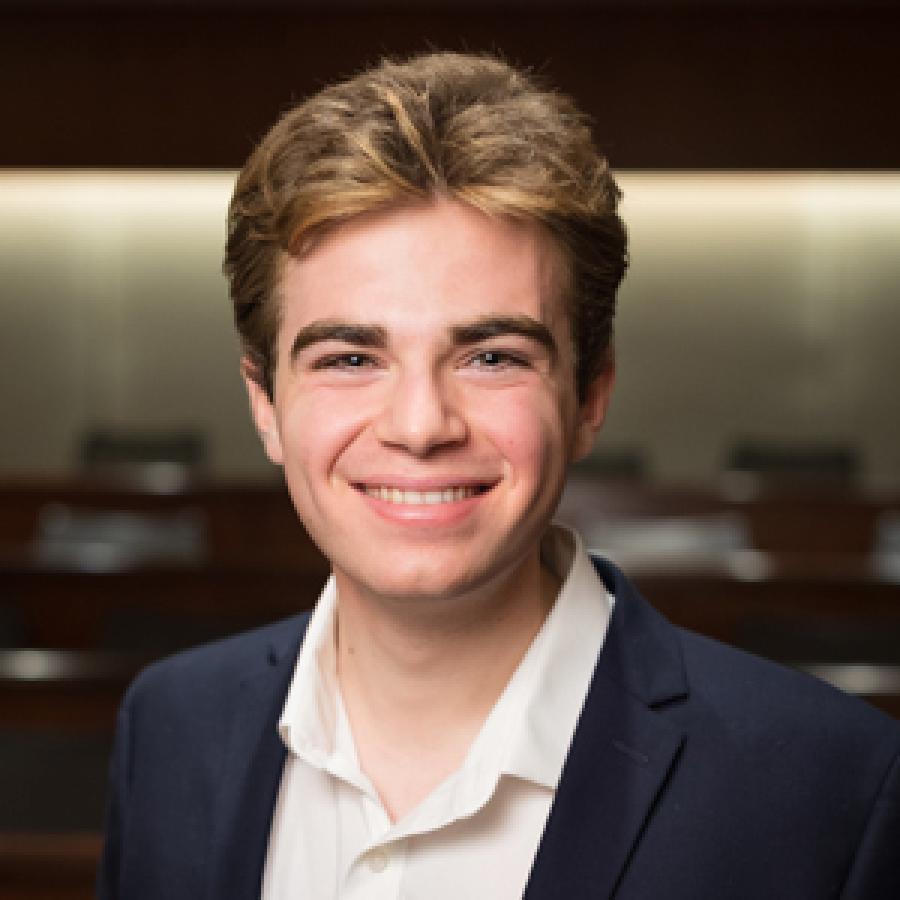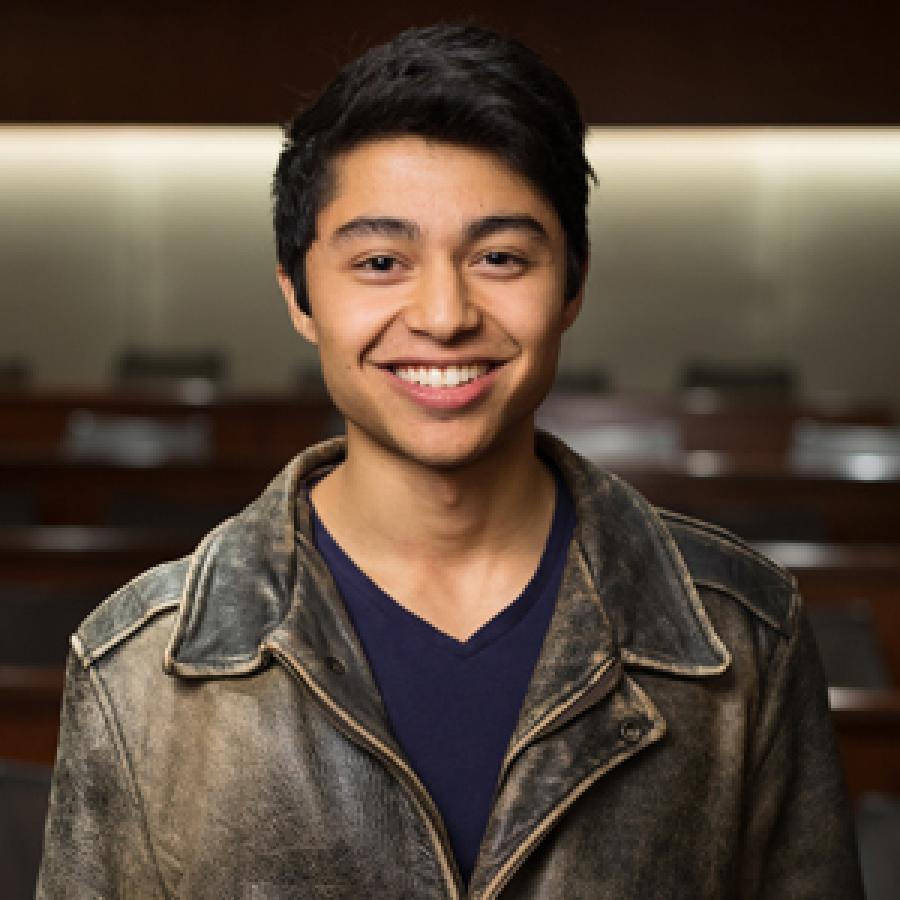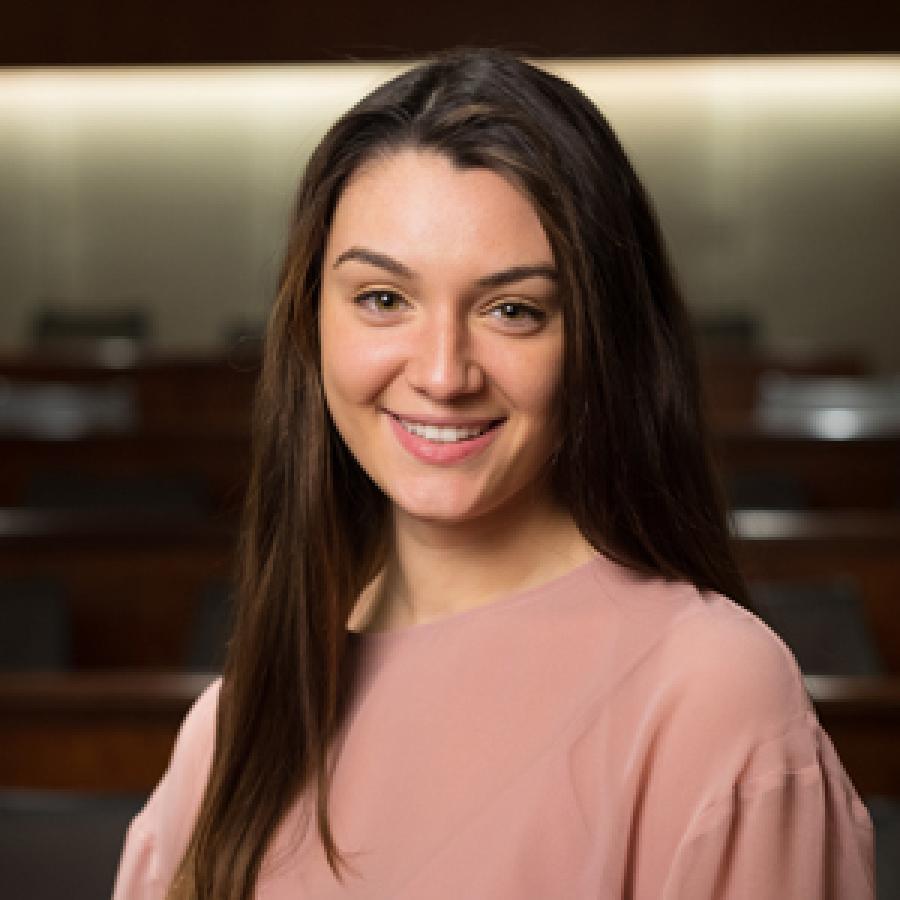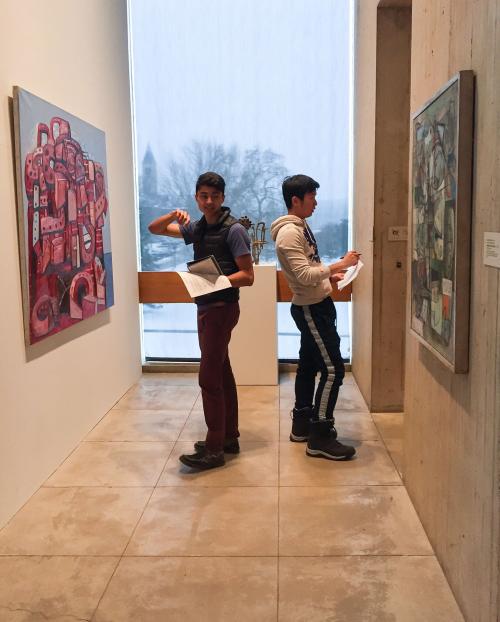What is the likelihood of a universal language emerging some day? How can mathematical models help us understand how humans operate in society? Under what conditions can communities recover socially, economically and psychologically after a major conflict? These are some of the questions that the new group of College Scholars in the College of Arts & Sciences are trying to uncover in their research.
“The College Scholar Program is the pinnacle of the liberal arts experience at Cornell,” said Michael Goldstein, associate professor of psychology and director of the College Scholar Program. “It is important because it allows students to leverage all of the expertise across all the departments in the College of Arts & Sciences and beyond to produce the most innovative and interesting research.”
The College Scholar Program is designed for students who are passionately focused on a particular type of problem, issue or singular aspect of a larger field. College Scholars explore subjects with a broader integration of related disciplines, develop a focused aspect of an interdisciplinary field or pursue a subject in which they are unusually advanced.
Students apply to be College Scholars the first semester of their sophomore year. While College scholars are not required to complete college distribution requirements, they are required to complete a senior project or honors thesis during their final year. “If students are interested in applying to the program, I strongly encourage them to come talk with me or come to one of our information sessions this spring," Goldstein said.
Goldstein works with a faculty committee to select the new College Scholars, and assign faculty mentors, who work with the students to develop their own research ideas. This semester, incoming college scholars are taking a new seminar with Goldstein, which serves as an interdisciplinary research methods course. Program coordinator, Advising Dean Jim Finlay, helps Goldstein advise and mentor the College Scholar students.
“The program allows students to take responsibility for their intellectual development,” Goldstein said. “We have students that have interests in a broad range of subjects, from the visual arts to physics. This group of students are really inspiring to work with. I’ve been learning a lot from them about how different fields conceive of data, how different fields define truth.”
In the weekly seminar, students explore a variety of ways to approach research. For example, they recently undertook a visual literacy activity at the Johnson Museum of Art where they paired up and took turns describing an artwork to a student facing away from the work. The student who couldn’t see the artwork had to then draw what their peer was describing. After the activity, students talked about how word choices matter, and how an individual’s biases towards a given image are communicated.
“I chose the College Scholar Program because the interdisciplinary nature of language across different fields fascinates me, and it evidently cannot be addressed from one point of view,” said Samuel Ryb ‘21, a new College Scholar. “I feel privileged to have the opportunity and flexibility to take courses and conduct my research in different departments due to the ethos of the College Scholar Program.”Ryb’s research is titled “Language Without Borders: What is the likelihood of a universal language emerging?” When Ryb was 5, he moved from London to the Middle East, where many of his classmates spoke Arabic, Yiddish and Farsi. This inability to communicate with his peers in English catalyzed a long-lasting fascination with language and communication. By the age of 15, Ryb had studied in four languages and lived on two continents.
“My interest in the acquisition of language as a mode of communication, in addition to the study of existing universal words that manage to bridge cultures, stemmed from this experience,” Ryb said. “In taking courses within linguistics, mathematics, philosophy, theatre and computer science, it is my intention to explore the possibilities and feasibilities of a universal language emerging.”
Ryb will analyze the development of mathematical theorems and logical quantifiers to explore why humans do not leverage the same elements from mathematics as an integral feature of their native languages. Ryb’s research will interrogate different schools of thought such as Locke's and Kant’s argument that language stems from logical thought and Augustine's, Rousseau's and Montaigne’s claim that we do not use mathematics and machine language as a spoken language as it lacks the capacity to convey human expression and emotion.
“Is this the underlying theme that will lead to a universal language without borders?” Ryb said. “A form of communication that prioritizes emotions and expressions over conveying logical and rational truth? Is this the direction in which our language is shifting toward?”
Outside of class, Ryb works with his project team, Engineers Without Borders, does editorial work for Guac magazine and also translates pieces of Middle Eastern theatre into English. Ryb hopes to study abroad next spring.
“After college, I would like to continue with my research, particularly in the area of languages and symbolic systems,” Ryb said. “I am also very eager to produce a show on Broadway.”
Another incoming college scholar is Victor Odouard ‘21, whose research topic is “Mathematical Modeling of a Functioning Human Society.” Odouard combines mathematics and social sciences to find patterns that permeate all areas of society, hoping to demystify how our society works.“I’ve always had a deep interest in mathematics and the social sciences, but I could never see what connected the two,” Odouard said. “Mathematics and social sciences really go hand in hand — math helps us spot commonalities across different societies while the social sciences are concerned with patterns.”
Victoria Watson '21, another College Scholar, is working on, "State-and-Nation-Building in Post-Conflict Socieities." Watson started her college career as a government major with a minor in Arabic but soon realized she needed to draw from other fields such as anthropology, economics and sociology to adequately study what she wanted to: human rights violations, war, and injustice. Because of her experience working with refugees and asylees at the International Rescue Committee, Watson hoped to find a globally-focused discipline that can give her the necessary skills to promote justice."I want to test the meaning and value of theoretical concepts through practical application," Watson said. "The complex real-life problems I want to dedicate my life to solving require a foundation in other subjects, as well. The answer to resolving conflict may lie in women's empowerment, judicial procedures, clean water, electricty, education, etc. The College Scholar Program allows me to pursue an interdisciplinary tract of research that requires me to bring different sorts of questions and facts into dialogue with one another. "
Other incoming College Scholars and their projects include:
- Carroll Micaela: “Patterns: The Key to Learning Language & Movement”
- Timothy Chue: “Reasoning, Consciousness and Artificial Intelligence”
- Emma DiGiovanni: “An Interdisciplinary Study of Animal-Human Interactions”
- Anekha Goyal: “Explorations into Decision Making to Counter Inequity in Healthcare Policy”
- Anna Lifsec: “The Potential Impact of Education on Incarceration and Recidivism in the United States in the Era of Mass Incarceration”
- Hannah Marks: “Exploring Links Between Gender, Inequality, Technology, and Business”
- Katherine Pyne-Jaeger: “The Underworld of Women’s Vocality in Contemporary Mythological Literature”
- Sarah Schar: “Reality//Surreality: Conceptualizing Reality through the Lens of the Avant-Garde”
- Sarah Skinner: “Understanding: Empathy, Text, and Media through the lens of Cognitive Science”
- Milo Vella: “Comparative philosophies of land use: the ideologies underlying interaction with place”
- Victoria Watson: “State-and-Nation Building in Post Conflict Societies”
- Sterling Williams-Ceci: “Changing Times: Benefits and Challenges of Growing up in the Digital Era.
Yvette Lisa Ndlovu is a communications assistant for the College of Arts & Sciences.







